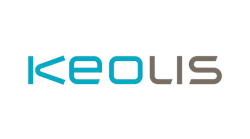Keolis Renews Itself and Affirms its Commitment to Shared, Sustainable Everyday Mobility

Jean-Pierre Farandou, president of the Keolis Group, unveiled the Group’s new brand strategy: "In light of the third mobility revolution, Keolis is renewing itself to involve territories, passengers and its employees in a more sustainable and, in a word, more human mobility."
In light of the third mobility revolution, Keolis, public transport operator, is becoming a specialist in everyday shared mobility
The third mobility revolution has begun. A legacy of the railway and automobile revolutions, it combines the classic, heavy "mass transit" modes — train, metro and tram — with the car, but with a new style of use: shared, connected and, eventually, autonomous.
The public transport market has gradually shifted from a logic of flow management to an approach that takes into account the individual’s specific mobility needs. The classic transport offer, standardised and anonymous, is thus evolving towards more personalised mobility services.
Digital solutions enable a new experience of mobility that is faster, simpler and better adapted to the needs of every individual. These solutions generate an enormous amount of data, which explains the interest of the GAFAs for the sector. Also, new players (private hire companies, car manufacturers) are starting to compete with the traditional operators of the mobility market.
So while remaining a leader in its core business, Keolis is pursuing its development in new forms of mobility and developing a pioneering spirit in relation to everyday travel. Keolis was an early entrant to this market by establishing strategic and industrial partnerships such as:
- The 100 percent electric autonomous shuttle manufacturer NAVYA, with which it launched the first public shuttle service in Lyon in September 2016, the first public autonomous shuttle service to be integrated into an existing public transport network.
- LeCab, a key player in the domain of private hire vehicles in France, and Via, inventor of the shared private hire vehicle in New York, which in January 2017, created PLUS in Paris. The first shared private hire service to combine the most efficient route calculation algorithms with passenger walking time.
Thanks to these partnerships, the Group has gradually integrated these innovations into its core business in line with its strategic vision of future mobility, embodied in the model CASE:
- Connected: connecting vehicles to Wi-Fi to optimise mobility services and make the journey more enjoyable; connecting the vehicles with each other, in a multimodal vision, to provide new modes, new routes, and optimize quality of service; connecting passengers to simplify the customer experience thanks to digital applications which guide them throughout their journey.
- Autonomous: autonomisation creates new mobility solutions that are safer, more reliable and more economical.
- Shared: tomorrow’s mobility will be "on demand" thanks to a shared vehicle offer with a high quality of service, to fight against solo driving.
- Electric: tomorrow’s mobility is, by definition, sustainable mobility, using clean energy.
A new visual identity
To better embody its strategic ambitions, Keolis is transforming its visual identity. The logo’s new typography evokes fluidity, solidity and modernity. Its colours symbolize expertise and innovation (blue lagoon) as well a strong regional presence (taupe grey), the fundamental elements of Keolis’ DNA.
The Group also reaffirms its commitment to the regional authorities and its customer-passengers by formalising its promise to its customers: "more ways, more life". This dynamic signature reflects the ambitions of a Group that has evolved in tandem with the challenges facing the company and its market. By diversifying the choice of modes and itineraries, Keolis is helping to improve the quality of life of citizens and the vitality of the territories. This new identity reaffirms Keolis' desire to innovate in order to create, alongside the Organising Authorities of Mobility, a sustainable and personalised mobility that takes into account the specific profile and needs of each individual.
This new brand strategy is accompanied by a communication strategy that aims to share Keolis' vision of future mobility, notably via future-oriented studies in the Keoscopie line (a research institute focusing on mobility and lifestyles) and the World Mobility Report (a study of the different uses of digital mobility, conducted with Netexplo in 13 smart cities).
Finally, Keolis will soon launch Pulse, its new bilingual magazine (French and English) that compiles opinions from industry experts (sociologists, town planners, elected officials, etc.) to encourage reflection and dialogue on mobility issues.


